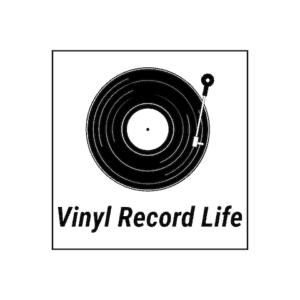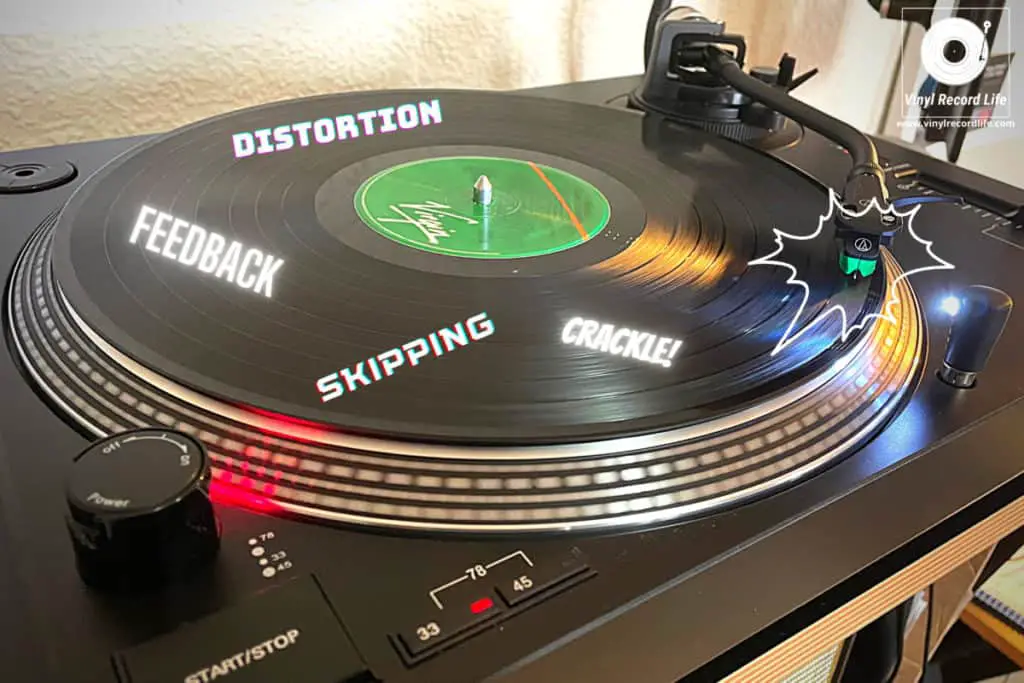
We’ve all been there. It can happen gradually over time, sometimes it can occur suddenly, but whichever way it does unfold a bad sounding record player or turntable is extremely frustrating.
Oftentimes the root cause of the issue is quickly identifiable, and while the fix can be as simple as leveling your turntable, it can also range right through to replacing parts or equipment.
Here, I’ve outlined a number of different reasons behind a bad-sounding record player or turntable, which you can use to check and troubleshoot any issues you may be having.
Establishing Why a Turntable Sounds Bad
Understanding the different ways in which a record player sounds bad can help greatly in getting to the cause.
Here’s a table of some of the most common audible issues you can encounter and where the problem usually – but not always – lies:
| Type of audio issue | Possible root cause |
| Static, crackling, popping | Cleanliness of record or stylus, or scratches on record surface |
| Skipping or jumping | Cleanliness of record or stylus, tonearm set-up, damage to the record itself such as being warped or scratched |
| Distortion | This can be down to cabling, incorrect input/output set-up, positioning of equipment and more |
| Feedback | Poor isolation of turntable/speaker/amp |
Things You Can Check When Your Vinyl Records Are Sounding Bad
As touched on above, there are any number of things that can negatively impact the playback sound quality of a record, but the following is a list of factors you can easily check to try and quickly get to the bottom of an issue.
A lot of sound issues with a turntable can be solved with relative ease – they just require patience and a methodological approach to working through possible causes.
Let’s take a look through 12 common sound issues and where their problem may lie.
Make Sure the Record Isn’t Damaged in Any Way
A scratched or warped record will often result in a skipping sound when it is being played, so it’s always advisable to carefully inspect the surface of any record before playing it.
Records need to be stored carefully, in an upright position and not stacked to avoid becoming warped or misshapen, and they also need to be kept in protective sleeves to ensure no dirt, dust or other contaminants get embedded in the record grooves and result in surface damage such as scratches.
The better the condition a record is in, the crisper and warmer the sound it will produce.
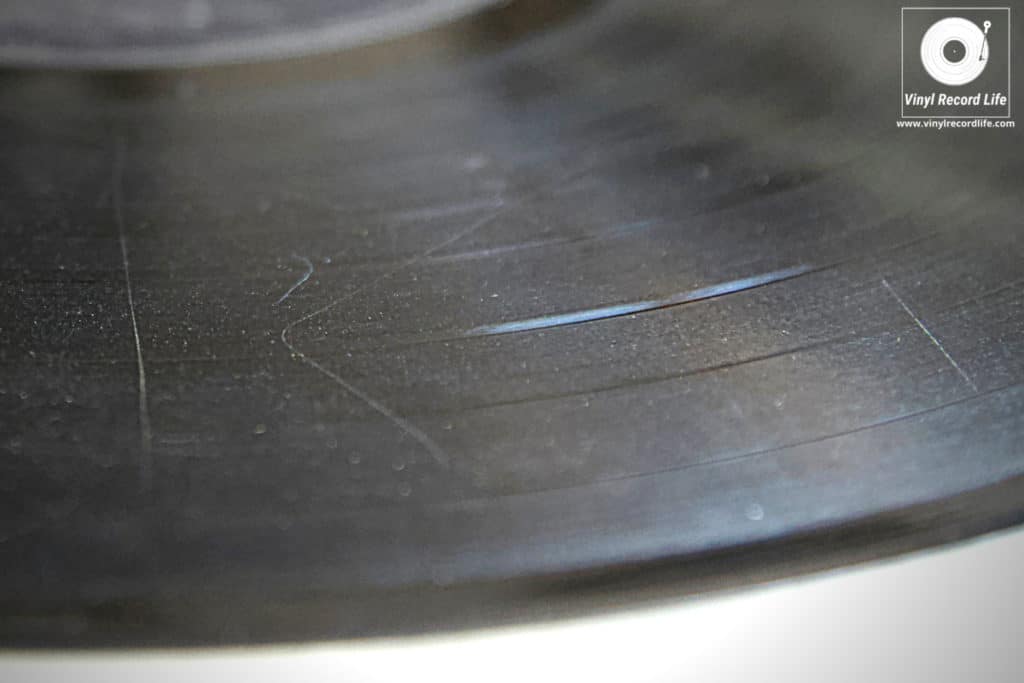
Check the Cleanliness of the Record to Ensure Minimum Crackle and Pop
A simple pre- and post-playing clean with an anti-static brush to remove any dust will help reduce static and crackle, and if you’ve been experiencing a lot of this kind of noise when listening to records then it is possible that a dirty record surface is contributing to the poor sound quality.
Using a brush takes just a few seconds and make a big difference to the longevity of your records and how good they’ll sound. A wet clean from time to time, using a carefully chosen solution, is essential to keeping your records in top shape and sounding good too, so consider this as an important factor in eliminating bad sound on playback.
As mentioned in the previous pointer, correct storage is also key to great sounding records, and by storing them in proper anti-static sleeves you’re already winning the battle against collecting dust and other dirt that can lead to scratches and other blemishes and which will negatively impact playback sound.
Crackle and pop are hallmarks of vinyl records and a little bit is always to be expected, but an excess can ruin the listening experience and can also be a sign of damage being caused to your records.
To understand why it happens, and how you can minimize it greatly, check out this guide I put together on dealing with the issue.
The Quality of the Equipment Will Influence the Sound Quality of a Record
There’s no gentle way of saying this, but cheap kit will result in poor sound when playing records. If you’ve purchased an all-in-one record player such as a Crosley, then the sound quality won’t be up to much. I have nothing against Crosley or any other affordable player, but it’s an undeniable fact that they don’t produce a great sound and you’re going to have a tinny playback from your records with no depth of sound.
These kinds of players also tend to use cheaper components, such as a poor quality stylus, and neglect important factors such as tracking force, which will damage your records.
It’s not just your record player that can make a record sound bad. Speakers, amps, cables and any other equipment that forms part of your set-up will all have an impact, so it’s worth assessing each element of your record playing system to make sure you’re doing the music justice.
An affordable upgrade in just one area can make a vast difference to how a record sounds, and with a little research you can often find equipment that is not too expensive but which will make a vast improvement to the overall sound quality of your records when playing.
The Tonearm Can Greatly Affect Sound Quality of a Record
Tonearm set-up is such a critical step in getting a turntable balanced just right for great-sounding music. Poor tonearm set-up can result in any number of sound issues, and is also a big factor in protecting your records from long-term damage.
I’ve covered a comprehensive list of common tonearm issues and quick fixes which could help you remedy any potential bad sound you may be getting out of your records.
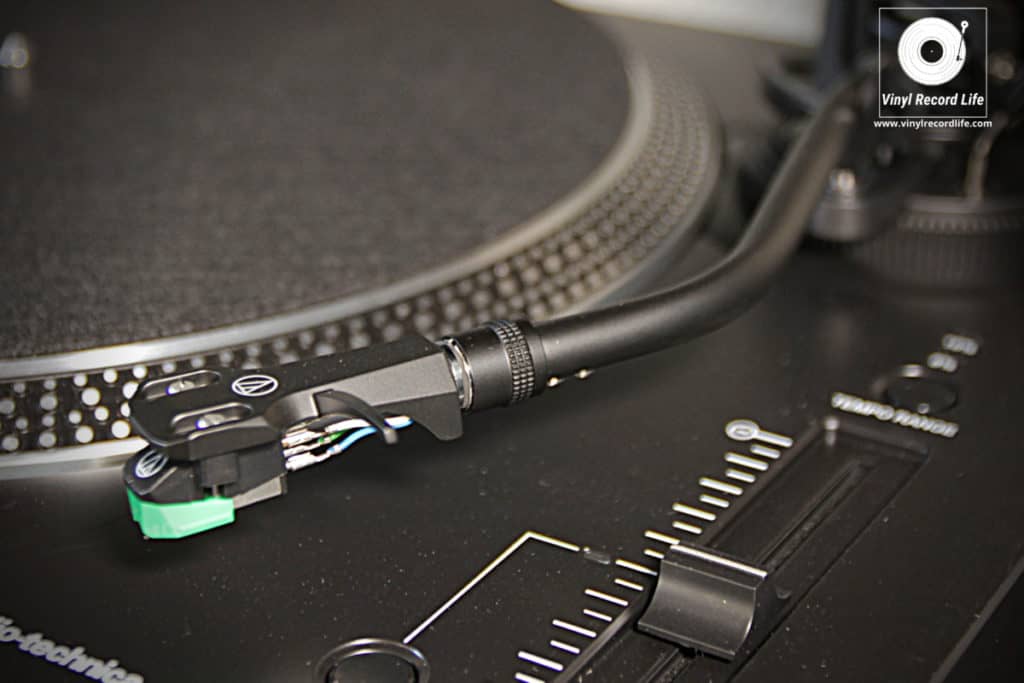
If the Cartridge Is Not Properly Set Up the Music Will Not Sound Good
Muffled sound, distortion, unequal channel balance, harshness or softness… these can all be caused by a cartridge that isn’t correctly aligned.
Most cartridges come pre-aligned on new turntables, but if your record-playing experience is being ruined by a poor playback sound, then the cartridge should be something you check out.
The wiring and connection to the headshell pins is also something that you should inspect closely when having a look at your cartridge.
Alignment is a relatively simple process but one which does require an attention to detail, and is covered in our guide to replacing a cartridge.
A Stylus Inspection Will Help Root Out Some Issues with Bad Sound
A damaged stylus won’t just make your records sound bad, causing possible skips, pops and other jarring snags, but it’ll also destroy your records.
Keeping your stylus clean is important and should be something you keep on top of – there are very affordable cleaning kits out there that can do the job.
It’s also important to observe the general wear of a stylus, and when the time is right, to change it.
Check out how to know when the time is right to change a turntable stylus, and how to do it, in our step-by-step guide.
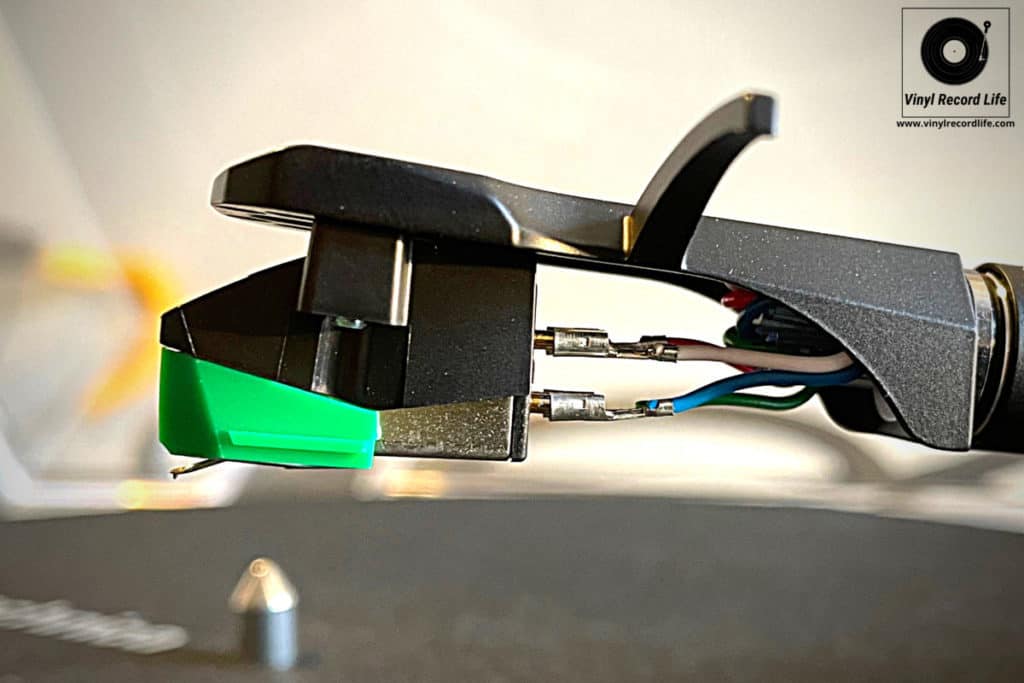
Speed Variation Can Cause Issues with The Sound on a Turntable
If you’re getting a slurred, sped-up or just irregular consistency of sound on your records, it could be down to a series of factors that need attention, from the simplest being the wrong speed selection, to something that needs more attention like the calibration of the turntable rotation speed or the elasticity or tension of the belt.
There’s a comprehensive list of things you can check, accompanied by fixes, in our post Why Is My Record Player Speed Too Fast or Slow and How Can I Fix It?.
The Position and Leveling of the Turntable Will Greatly Affect Sound Quality
If you’re experiencing some unwanted surface noise, this can often be down to a turntable not being level. Making sure your turntable is flush is one of the essential basics when setting up your system. Over-emphasis of one channel (left or right) can also be a result of a non-level platter.
The positioning of the turntable or record player is another key factor to clean sound, and if your turntable isn’t isolated away from other equipment, you may be hearing anything from hum through to feedback.
If your turntable hasn’t been placed away from cables, speakers and on a steady surface that is free from vibration, then poor sound can be a result.
Always make sure your turntable is level and on its own footing away from other kit to ensure the best possible sound.
Finding the Sweet Spot for your Speakers Will Improve Sound
If you feel like you’re not getting the maximum out of your record player set up, the positioning of the speakers can have a real effect on the richness and quality of sound.
Placing speakers too close to a wall can affect the bass, and placing them too close together can negate the effect of being able to pick out instruments, solos and other sound details.
The larger your speakers, the further away from a wall you’ll need to place them, and creating an equidistant triangle between yourself and the two speakers will help establish an ideal listening set up.
Check the Grounding of Your Record Player to Avoid Hum
If you’re getting hum when using your turntable at a reasonable volume level, it’s more often than not caused by incorrect grounding.
Grounding hum is the most common type of hum that you’ll come across, so ensuring that your turntable is properly grounded according to manufacturer instructions is a first port of call.
Loose wires connecting the tonearm to the cartridge can also be a cause of hum, so check that there are no loose connections. Take care with this, as the wires and connecting pins are delicate so a steady hand is required.
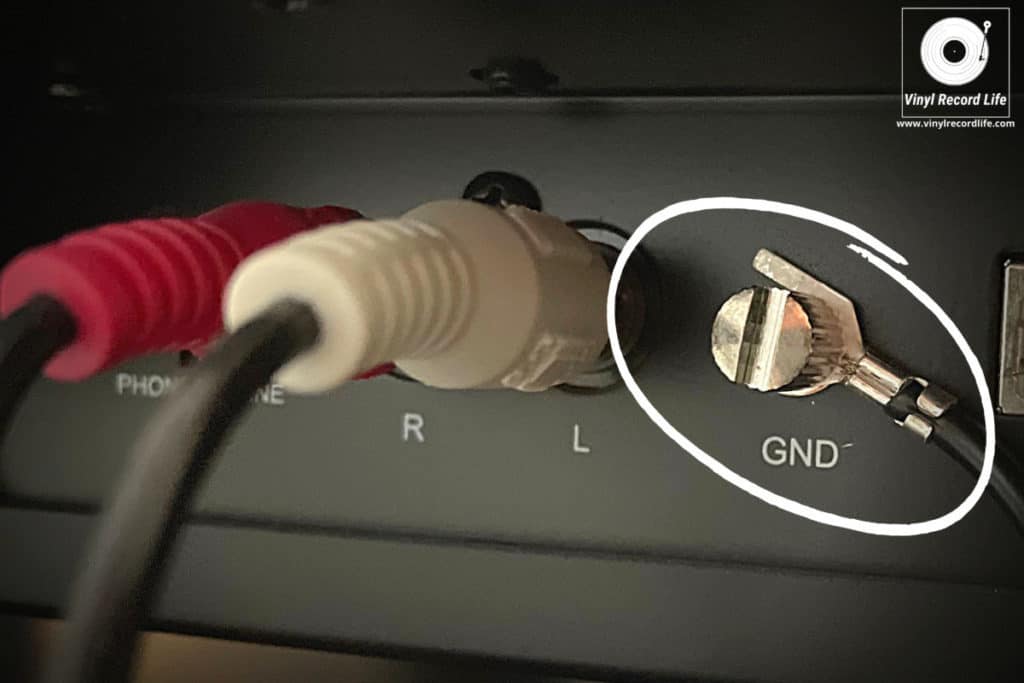
Make Sure the Right Cables are Plugged into the Right Inputs
Mixing up cable outputs and inputs can lead to bad sound, with either a boost in sound level or a notably quiet playback level being the result.
Not having the turntable plugged into an amp with a phono input will usually result in a very weak or quiet sound.
On the flipside, if your turntable has a built-in phono stage and is hooked up to the phono input on an amp, the result will be a loud and distorted sound as the signal is being boosted twice.
Making sure that the output from your turntable is correctly pre-amplified is a key step in getting the best sound out of your set up.
Find out more about phono preamps and how they can affect sound here.
